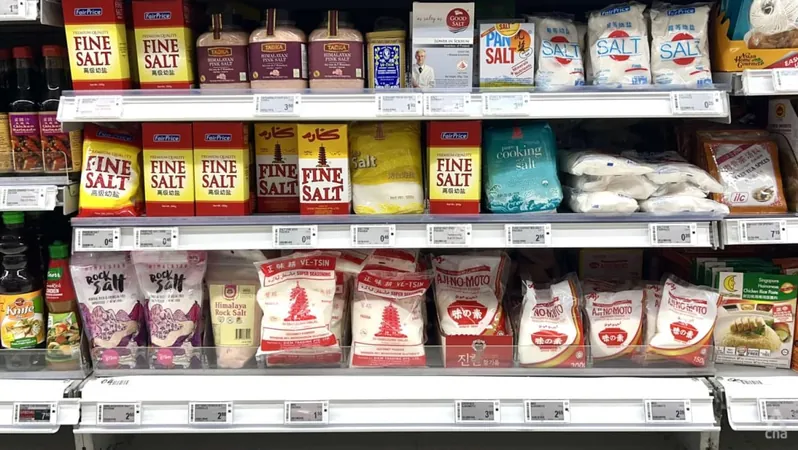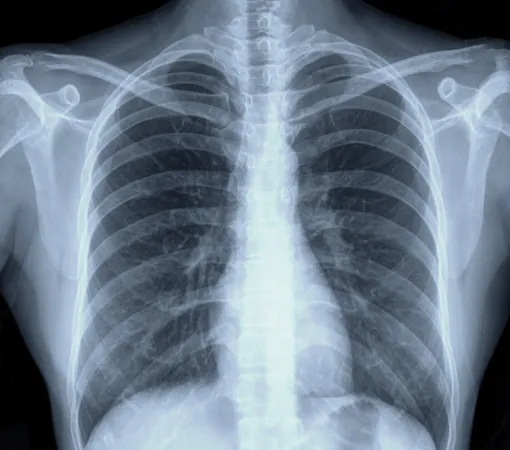
New Nutrition Labels for Salt and Saturated Fat to Be Introduced in Singapore by Mid-2027
2025-04-06
Author: Jia
Introduction
In a significant move to enhance public health, Singapore will implement mandatory nutrition labeling for salt and saturated fat on various food products by mid-2027. This initiative primarily targets instant noodles, sauces, seasonings, and cooking oils—key contributors to sodium and saturated fat intake among Singaporeans.
Expansion of Nutri-Grade System
Currently, the Nutri-Grade labeling system, which assesses sugar content, is applicable to beverages. The upcoming changes will expand this assessment to encompass salt and saturated fat content, providing consumers with a clear understanding of the nutritional quality of products they purchase.
Health Concerns
Health Minister Ong Ye Kung unveiled further details during the Singapore Heart Foundation's 55th anniversary celebration, highlighting the alarming rise in heart disease diagnoses in the nation. Reports show that the number of Singaporeans diagnosed with acute myocardial infarction has surged over the past decade—rising from 25 per day a decade ago to 36 in 2022. "Each statistic represents a family member, friend, or colleague we care about," Ong emphasized.
The Ministry of Health (MOH) has expressed concern over the health statistics, revealing that more than one-third of Singaporeans have hypertension, with this figure nearly doubling since 2010. Additionally, approximately one in three residents suffers from high cholesterol, both of which are linked to excessive salt and saturated fat consumption. Alarmingly, nine in ten Singaporeans exceed the recommended daily sodium intake of 2,000 mg, consuming about 3,620 mg on average.
The Dietary "Three Ss" Initiative
To combat these issues, the extended labeling initiative will focus on the dietary "three Ss"—sugar, sodium, and saturated fats. The labels will grade products from A to D based on their nutritional composition, with A representing the healthiest options and D indicating the least healthy. For items graded C or D, the Nutri-Grade label will prominently feature on the packaging to inform consumers.
Support for Food Manufacturers
The MOH is taking significant measures to ensure a smooth transition for food manufacturers, providing ample time for them to reformulate their products. By mid-2027, food companies will need to comply with new thresholds for sodium and saturated fat, which will vary by product type. For instance, sauces that are traditionally high in sodium will not be penalized under the same criteria as less sodium-dense foods.
Broader Public Health Strategy
This initiative fits within a broader strategy to reduce sodium intake in Singapore by 15%, complementing existing efforts to lower sugar consumption. In recent years, public health campaigns have successfully reduced Singapore's daily sugar intake from 60g in 2018 to 56g in 2022.
Anniversary Initiatives
Furthermore, the Singapore Heart Foundation has announced a series of initiatives to commemorate its 55th anniversary, including a live charity show aimed at promoting heart health awareness.
Conclusion
This comprehensive approach demonstrates Singapore's commitment to enhancing the health of its residents by addressing dietary risk factors and encouraging healthier eating habits. As the launch of Nutri-Grade labeling approaches, consumers will be empowered to make more informed food choices, ultimately contributing to better health outcomes for the community at large.


 Brasil (PT)
Brasil (PT)
 Canada (EN)
Canada (EN)
 Chile (ES)
Chile (ES)
 Česko (CS)
Česko (CS)
 대한민국 (KO)
대한민국 (KO)
 España (ES)
España (ES)
 France (FR)
France (FR)
 Hong Kong (EN)
Hong Kong (EN)
 Italia (IT)
Italia (IT)
 日本 (JA)
日本 (JA)
 Magyarország (HU)
Magyarország (HU)
 Norge (NO)
Norge (NO)
 Polska (PL)
Polska (PL)
 Schweiz (DE)
Schweiz (DE)
 Singapore (EN)
Singapore (EN)
 Sverige (SV)
Sverige (SV)
 Suomi (FI)
Suomi (FI)
 Türkiye (TR)
Türkiye (TR)
 الإمارات العربية المتحدة (AR)
الإمارات العربية المتحدة (AR)